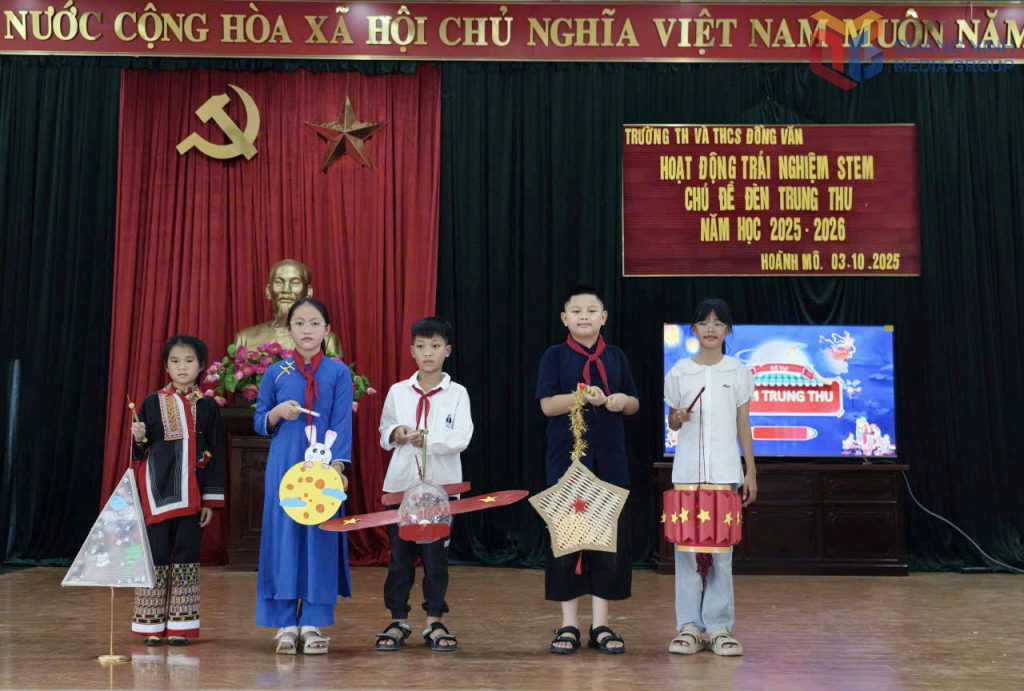
Small lessons, nurture big dreams
The road to Dong Tam Secondary School (Luc Hon commune) winds through the cloudy mountainsides, the slopes are still slippery after the rain. On Monday morning, students from the villages: Sam Quang, Phieng Sap, Ngan Phe, Ngan Vang Tren... bring their clothes, school bags, sit on the back of motorbikes driven by their parents to school. Many children hold backpacks containing a few sets of clothes, some food prepared by their mothers, their hearts filled with excitement and nostalgia. Dozens of kilometers away from home, the winding mountain pass road cannot be traveled back in a day, so this school has become a second home for many students, a place where they both learn and grow up.
Dong Tam Secondary School currently has 298 students, of which more than 99% are ethnic minorities, mainly Tay, Dao, San Chi; 139 of them stay in the boarding school during the week (from Monday to Friday), and only go home on weekends. The boarding school has 11 rooms, clean and warm, each room has the students' handprints, neatly folded blankets, tidy study corners, and pieces of paper with loving messages on the wall. Teacher Pham Thi Hang, Principal of Dong Tam Secondary School, said: The students live far away, their parents work in the fields all the time, so the school not only teaches them to read and write, but also teaches them life skills, behavioral skills, and independence skills.
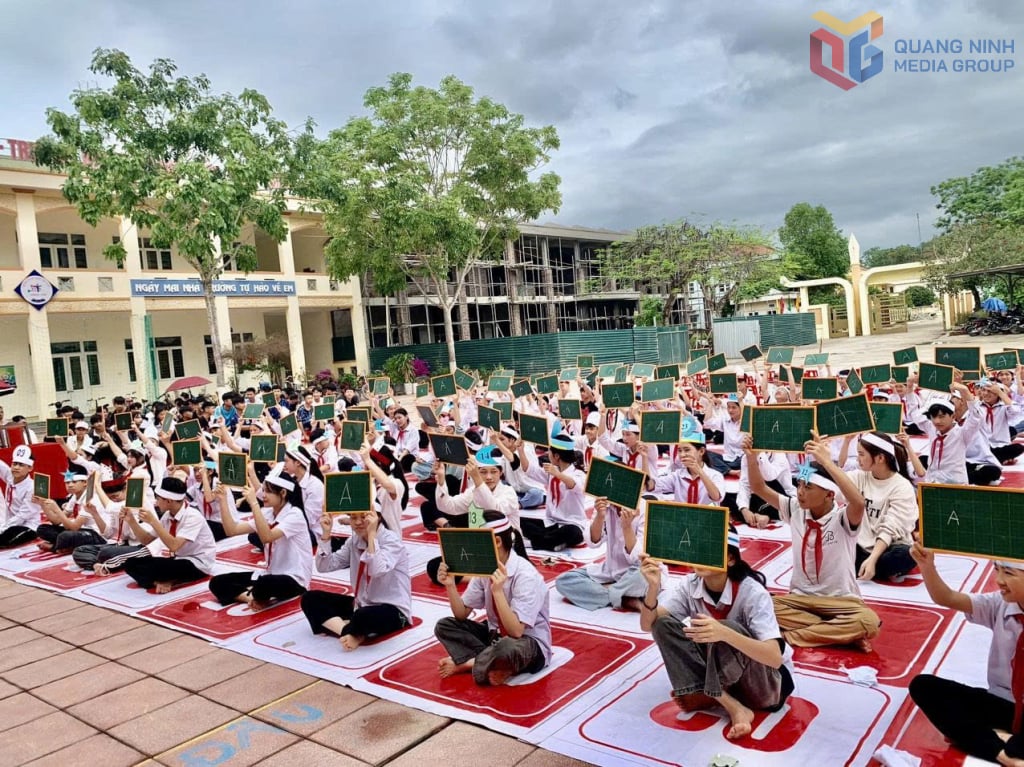
In August 2024, this school transformed its model from Dong Tam Boarding Secondary School for Ethnic Minorities (formerly in Binh Lieu district) to Dong Tam Secondary School. However, the school still maintains its weekly boarding activities. Under the canopy of trees, in the laughter, singing and the sound of brooms sweeping the yard every early morning, we clearly feel the spirit of self-awareness and solidarity of the boarding students at the school. Here, teaching life skills is not confined to dry lessons, but is conveyed through daily activities. The children learn how to fold blankets neatly, keep their rooms clean, say thank you, apologize, help friends, and share when someone is sick.
Teacher Pham Thi Hang added: In the past, the school used to borrow land from local people for students to grow potatoes and vegetables, both to practice labor and to improve meals, but now because the students study 2 sessions/day and there is no more land, farming activities are no longer maintained. However, the spirit of independence, diligence, and discipline is still nurtured by teachers every day through small things. In each Literature, Civic Education , or class activity, teachers integrate life skills, communication skills, and behavioral skills. Students participate in experiential and career guidance lessons once a week, and are trained in public speaking, teamwork, and sharing of emotions.
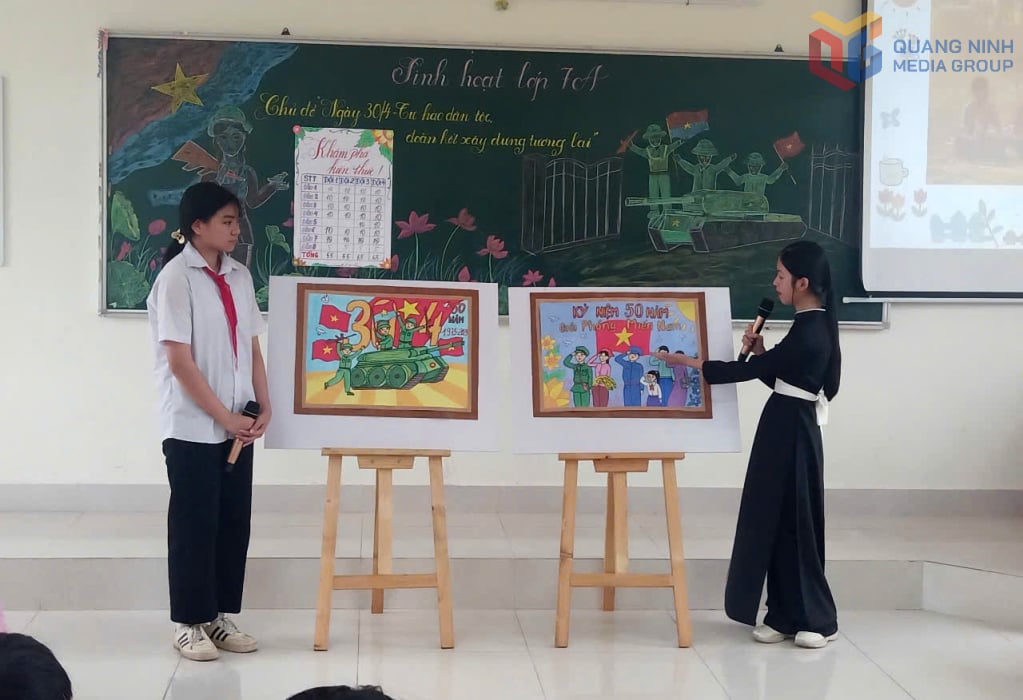
In particular, the school organizes regular monthly extracurricular activities through flag-raising ceremonies, art competitions, sports , folk games, and introducing the culture of the Tay, Dao, and San Chi ethnic groups. There are two school-level activities per semester, and on each occasion, the schoolyard is brilliant with brocade colors, and laughter echoes through the mountains and forests. Ethnic minority students are inherently gentle, quiet, and shy about expressing themselves, but through these activities, they gradually become more confident, know how to speak their minds, cooperate, respect, and help each other. Some students, who used to be shy, now dare to volunteer to sing, dare to talk about their homeland, about the beautiful customs of their ethnic groups. These seemingly simple skills are important provisions for highland students when they step into the world.
At Dong Tam Secondary School, teaching life skills is not an “add-on” but an inseparable part of personality education. Each teacher is a teacher, a parent, a friend, and a guide. There are evenings when the electricity goes out, the entire boarding area is lit up by flashlights, students sit together to review lessons, teachers go to each room to check and remind. There are days when it rains heavily, parents cannot come to pick them up, teachers organize games, tell stories, and cook extra food for the children. In the middle of the highlands, although there are still many shortages, the relationship between teachers and students here becomes closer than ever.
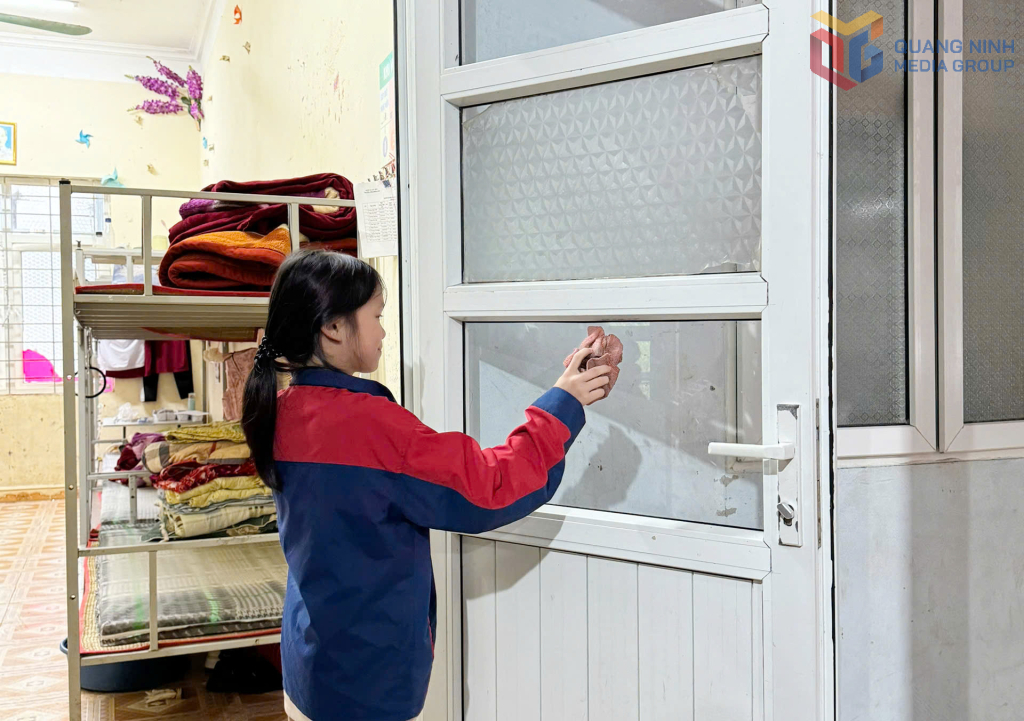
Chiu Ha Duyen, a Dao ethnic in Phieng Sap village , an 8A student at Dong Tam Secondary School, happily shared: Before, I was shy to talk to strangers, going to school I just listened to the teacher and then went back to my room. Since the school organized skill classes, I have learned how to greet, work in groups, fold blankets, clean my room, participate in performing arts and sports activities. Now I am much more confident, know how to help friends, know how to say thank you, apologize. At home, my parents also praise me for being more obedient, knowing how to help with chores, knowing how to prepare things for school. I like extracurricular activities the most, having fun and learning many things.
Cultivated with all the heart of teachers
In the mountainous area of Hoanh Mo commune, Dong Van Secondary and High School is also a bright spot in skills education for ethnic minority students. In the 2025-2026 school year, the school will welcome 307 boarding students, including 147 primary school students (80 weekly boarding students, 67 day boarding students) and 160 weekly boarding secondary school students.
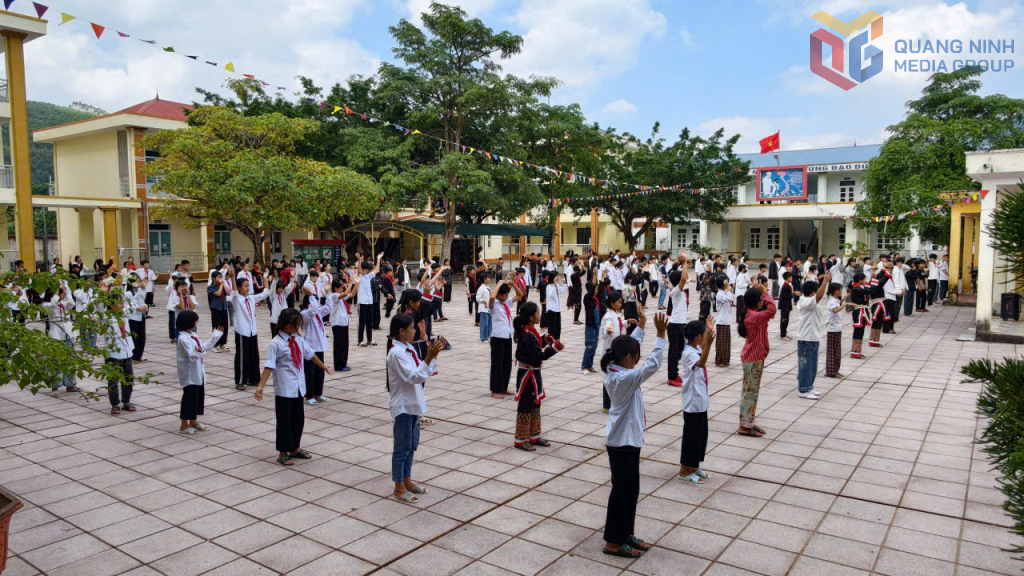
The school's facilities are well invested, with a new 3-storey dining hall and dormitory put into use from October 2024, meeting the living and studying needs of boarding students. On Thursday evenings for primary school and Friday evenings for secondary school, students here can watch TV and entertain themselves in the boarding space, creating cohesion and helping them relax after a stressful day of studying.
Under the direction of Principal Nguyen Thanh Trung, Dong Van Primary and Secondary School constantly innovates educational methods, creating a friendly and close learning environment. In particular, the school focuses on enhancing life skills and life values education for students through diverse extracurricular activities and clubs. Sports and healthy entertainment hours are organized regularly to improve students' health and spirit. In addition, cultural activities, festivals, and ethnic cultural exchanges are also maintained regularly, contributing to preserving and promoting national identity, helping students become more aware of social issues such as early marriage or domestic violence.
To Thuy Trang, living in Dong Thang village, Hoanh Mo commune, a 5th grade student at Dong Van Secondary School, shared: I like the sports and cultural activities at school the most. Through those activities, I learned how to work in a team, help my friends and become more confident in communication.
In recent times, in mountainous, remote and isolated areas, life skills education for ethnic minority students has been considered a key task, aiming to help them not only have solid knowledge, but also be confident and proactive in life. According to the Department of Education and Training, 100% of ethnic minority students use materials to enhance Vietnamese; local educational content is integrated into the subjects: Vietnamese, Ethics, Nature - Society, and experiential activities. The learning quality of ethnic minority students has improved significantly, the number of students who have not met the knowledge and skills standards has decreased; Vietnamese language proficiency has been improved; students are bolder and more confident in communication. 100% of students receive career guidance. Teachers' lessons are more lively, closer and more attractive.
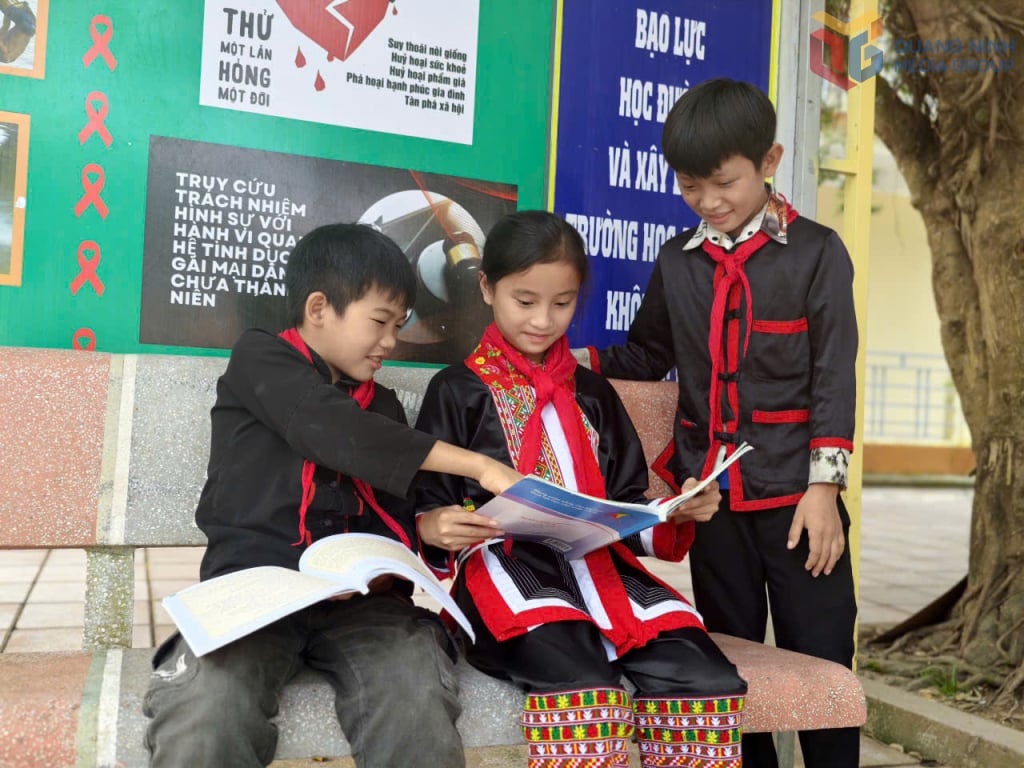
consolidate knowledge
Implementing the project "Reducing child marriage and incestuous marriage in ethnic minority areas", from 2021 to present, the Department of Education and Training has deployed and organized 12 forums with the theme "Ethnic minority students say no to child marriage and incestuous marriage", attracting the participation of more than 4,000 students and teachers in ethnic minority and mountainous areas. The forums are coordinated with reporters who are obstetricians and gynecologists of the Provincial Center for Disease Control to directly interact and exchange with students. Thereby, helping ethnic minority students not only have life skills and legal knowledge, but also open up opportunities to access new knowledge, ready for international integration.
It can be seen that teaching skills to ethnic minority students is not only about teaching them how to fold blankets, cook rice, or say thank you, but also about teaching them how to live in harmony, how to love, and how to be confident in themselves. Each student in remote areas of Quang Ninh today is gradually growing up from those simple lessons, in small but loving schools, where skills and personality are nurtured with all the hearts of teachers.
Source: https://baoquangninh.vn/ren-ky-nang-cho-hoc-sinh-nguoi-dtts-3381615.html


![[Photo] National Assembly Chairman Tran Thanh Man receives Chairman of the House of Representatives of Uzbekistan Nuriddin Ismoilov](https://vphoto.vietnam.vn/thumb/1200x675/vietnam/resource/IMAGE/2025/10/27/1761542647910_bnd-2610-jpg.webp)

![[Photo] Party Committees of Central Party agencies summarize the implementation of Resolution No. 18-NQ/TW and the direction of the Party Congress](https://vphoto.vietnam.vn/thumb/1200x675/vietnam/resource/IMAGE/2025/10/27/1761545645968_ndo_br_1-jpg.webp)


![[Photo] The 5th Patriotic Emulation Congress of the Central Inspection Commission](https://vphoto.vietnam.vn/thumb/1200x675/vietnam/resource/IMAGE/2025/10/27/1761566862838_ndo_br_1-1858-jpg.webp)
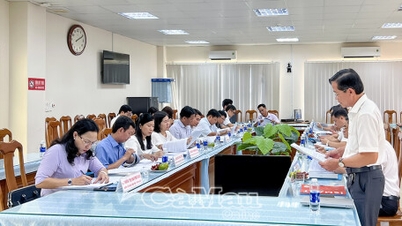

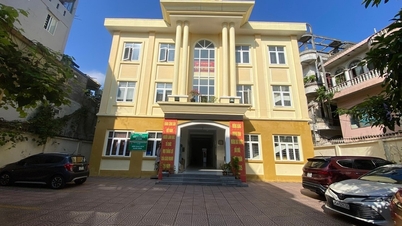

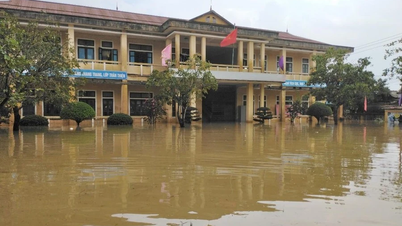



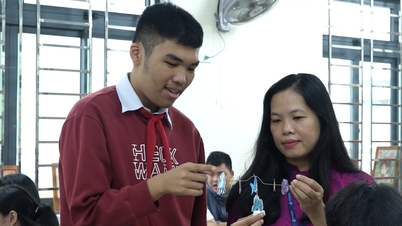

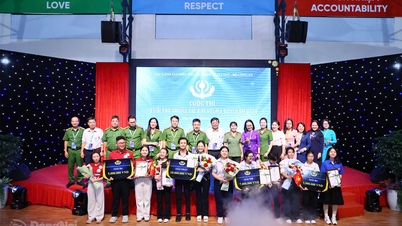

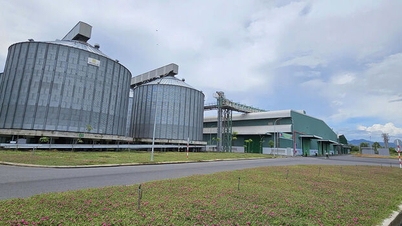

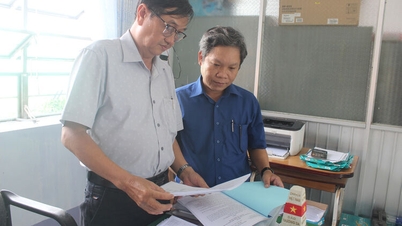
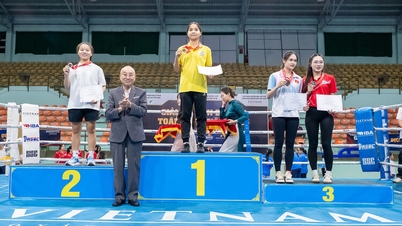
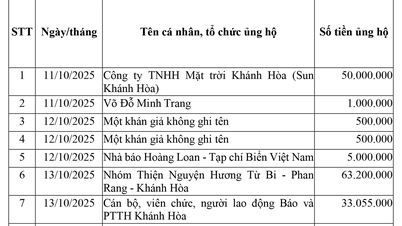

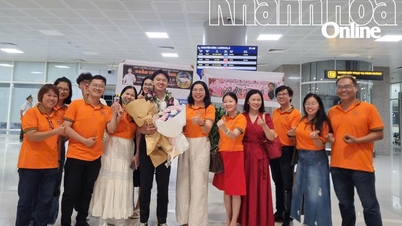





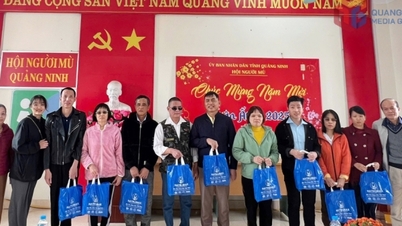

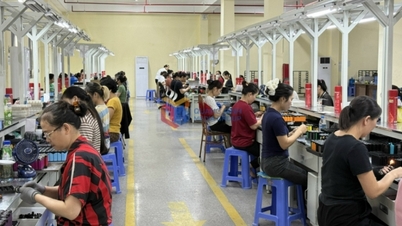

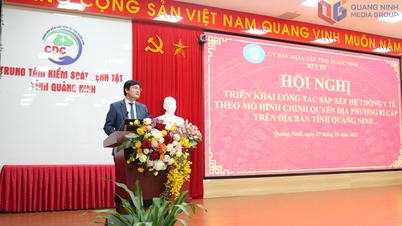















































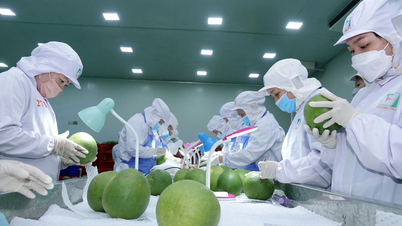

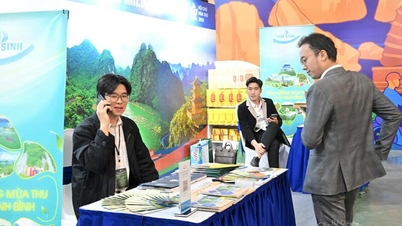

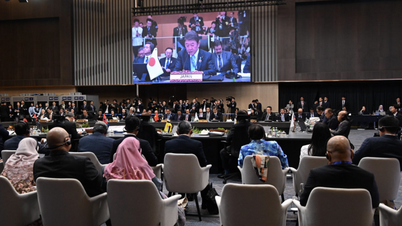



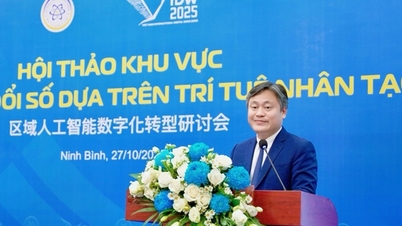



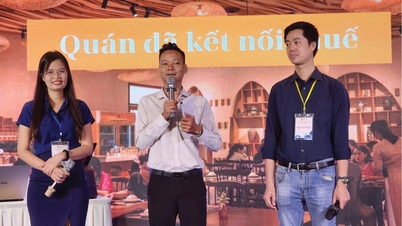

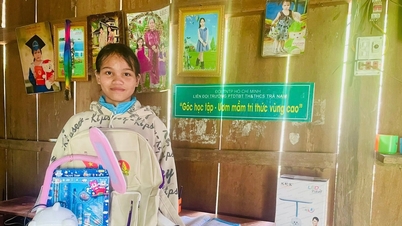
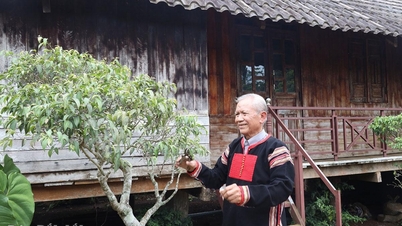


















Comment (0)